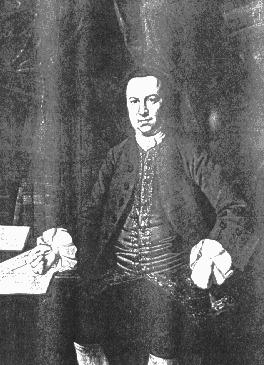
Record cover (RCA Victor)
The text for the cantata is excerpted from a poem entitled "Jubilate Agno", by Christopher Smart. The eighteenth century poet was in an insane asylum when he wrote it, and although there is a delightful sense of madness in the poem, the religious character of the work is the most striking. The manuscript is not complete, and the fragments of it were not found until 1939. Their discoverer, William Stead, published them under the name "Rejoice in the Lamb." Britten chose ten of the most celebratory and religious sections to set to music.
The piece is scored for male choir, organ, percussion, and four soloists.
